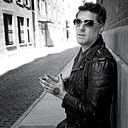VIDEO: Magick and ‘Hopeful Expectancy’
What is the turnkey to results?
“I see magick as ritual and method to harness extra-physicality. As such, I honor magick. I participate in magick. I do think that there are rituals and methods that the individual can use, such as prayer itself — which I define very broadly — to try and enter some relation with these extra-physical capacities.
“Are there extra-physical intelligences? Are there other intersections of time? Other dimensions with beings to whom we can enter some sort of relationship or petitionary relationship? These sound like outrageous questions for our 21st century digital age.
“But, in fact, I would say that a majority of people from all walks of life, including the hard sciences, harbor these questions. I simply endeavor to give voice to them. And participate in them. I think magick is a perfectly legitimate methodological effort at harnessing or relating to qualities of extra-physicality.
“Now, speaking from one perspective, we do need in our generation a theory of extra-physicality, a theory of mind causation, a theory of precognition, a theory of ESP. I believe that these things start to integrate with the UFO thesis — and I think that integration should be encouraged; I think that integration is an idea whose time is upon us.
“It has been argued that Western science is over-reliant on theory. William James and the pragmatists placed data above theory. As did Richard Feynman — although he was a real opponent of the very material that we’re talking about — and I think blindly so. He was a wonderful man, wonderful intellect, great scientist, great humanist; but he was hanging around the wrong neighborhood and picked up the wrong friends. I think that if he was here today, he would be more receptive to some of this material. But Feynman, too, in the great tradition of pragmatism, chastised students and colleagues for overattachment to theory above data.
“If the data is there then you’re shaking hands with reality whether you got a theory or not. Or whether you’re theory is very pretty or not…I do think, though, that theories help when we don’t overinflate their importance. They help us have discussions, debates, frame ideas — and we are overdue for a theory of ESP, of extra-physicality. As a lay person, I make an effort to articulate such a theory in my books The Miracle Club, Daydream Believer, and, most recently, Modern Occultism.
“That said, in terms of hardcore practicality, so much of what we experience in life — whether it’s decisions about money or science or anything else — is emotionally based. The world is just overwhelmingly ruled by emotions. It seems to me that emotional passion is absolutely critical when trying to approach some experience of extra-physicality. People have difficulty getting into that state of emotion. I think we as a culture have underestimated the difficulty of harnessing or working oneself into an emotional state.
“J.B. Rhine, the great parapsychologist who started the Parapsychology Lab at Duke University — a real intellectual hero to me — conducted literally hundreds of thousands, and eventually millions of trials, for ESP, psychokinesis (PK), and other things related to psychical research. J.B. was very conservative about not extrapolating beyond the boundaries of his data. But he did make one small observation that I found revolutionary. It appeared in the afterword, of all places, to a British edition of his 1934 monograph Extrasensory Perception.
“J.B. made the observation, which was later picked up on by Carl Jung — that when ESP is tested for in a laboratory setting, and you’re using stats as a measure, the stats invariably spike when the subject is in a good mood, is enthusiastic, is engaged, when there’s a feeling of comity and good humor — hopeful expectancy — in the lab. When boredom sets in, when distraction sets in, when there’s a prevailing feeling of negativity or fatigue, the scoring in invariably drops. But if the individual steps away, has some caffeine, has a smoke, or whatever, the scores rise again.
“J.B. observed that hopeful expectancy seems to be the turnkey to results, if any results appear at all. This comports with later findings in other fields. The placebo response itself is based entirely on hopeful expectancy — that’s the trigger as to whether some therapeutic effect is going to appear.
“The question of how to harness this hopeful expectancy or drum it up is central to the magickal operation. For example, rituals are supposed to bring us into that state of drama; prayer is supposed to bring us into that state of drama… An element of my present search is whether warranted belief in the extra-physical — which is part of why I am so dedicated to documenting psychical research — can help us sidestep even the need for ritual, prayer, liturgy. What would that mean for our culture?”
